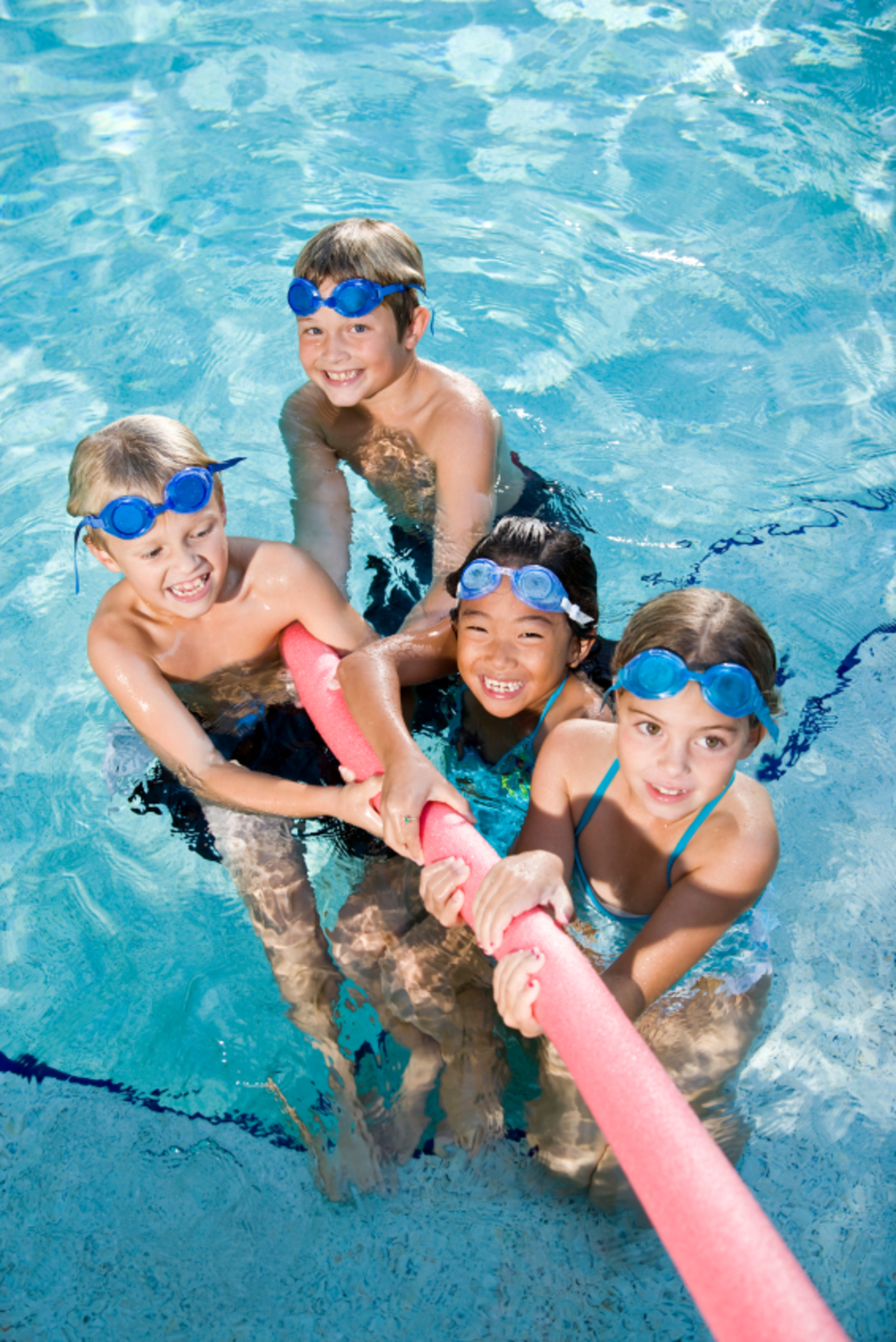Episode Transcript
Interviewer: It's summertime, and pool safety can be a big enough challenge, let alone if you have a child with developmental disabilities. We're going to find out what you need to look out for coming up next on The Scope.
Announcer: Medical news and research from the University of Utah physicians and specialists you can use for a happier and healthier life. You're listening to The Scope.
Interviewer: Pool safety. We're with Dr. Kyle Bradford Jones. He's at the Neurobehavioral Home Program here at the University of Utah, Family Medicine doctor. And for a parent that has a child with developmental disabilities, pool safety is a little bit more of a challenge. Let's talk about some of those things. These are conversations you have with most of your patients?
Dr. Kyle Jones: Absolutely. All the time. You know, individuals with developmental disabilities such as autism or intellectual disabilities, etcetera sometimes have a harder time around the pool. They need to be watched a little bit more closely because sometimes they don't understand the risks. They don't understand the dangers. So, it makes it much more important to keep a close eye on them as they're playing around the pool. Do your best to either avoid the deep end or to stay close by them when they are there.
Interviewer: What about even the shallow end?
Dr. Kyle Jones: You know, even the shallow end, it's true. Make sure that they're playing appropriately. What I mean by that is that they're playing safely. They're not continually hitting other children. They're not causing problems in that sense. They are able to play with others and play safely within the water environment.
Interviewer: Gotcha. What's one of the hidden dangers that a parent might not realize?
Dr. Kyle Jones: Individuals with autism, specifically, have difficulty with sensory issues. So they may not want to wear a floatation device or a life preserver. So you may put it on them and they go out to play, and then they don't like the way it feels, so they take it off.
Interviewer: That's pretty common?
Dr. Kyle Jones: Exactly.
Interviewer: Yeah. Excuse my ignorance. Is it an inability to swim that makes it a big danger for individuals with developmental disabilities around the water?
Dr. Kyle Jones: That's part of it. Especially at large pools where there's lots of other kids or lots of other people, sometimes they don't understand exactly how to interact with others. They can sometimes get into trouble in that sense.
Interviewer: So, for example, they don't understand the dangers of water, so they might put somebody under the water?
Dr. Kyle Jones: Exactly.
Interviewer: And not even realize that, that could be a dangerous situation?
Dr. Kyle Jones: Exactly.
Interviewer: Okay. Other situations like that?
Dr. Kyle Jones: Beware of the diving board or the slides for the same reasons: to watch out for other people but also make sure they can swim so that they can do OK once they're in the water.
Interviewer: What other concerns?
Dr. Kyle Jones: Obviously, sun safety, so making sure they're wearing sunscreen, keeping the skin covered up as much as you can while still allowing them to go out and have fun.
Interviewer: What's one of the most common injuries you see as a result of individuals with developmental disabilities at the pool?
Dr. Kyle Jones: One other safety thing to watch out for is it being slippery around the pool. Sometimes they don't understand that they need to slow down in order to keep from falling. And sometimes you see them come in with anywhere from a scrape to falling and hitting their head and having a head injury. So that's something to be very careful with.
Interviewer: What's the one take away that you would want to have somebody after they heard this walk away from?
Dr. Kyle Jones: If you have a child who has a developmental disability such as autism, keep a close eye on them and try to be as patient as you can with them in the pool so that they can play safely. If you don't have a child with a developmental disability and you're at the pool with one, again, please be patient and do the best you can to let them have some fun, too.
Announcer: We're your daily dose of science, conversation, medicine. This is The Scope, the University of Utah Health Sciences Radio.
